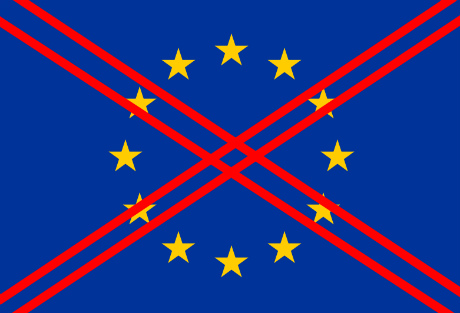-


Family law: Life, litigation and real-world client work
What is it really like to practise family law? In this session, the BPP team will interview a panel of practising family lawyers to explore the realities of working in this challenging and deeply human area of practice. The discussion will cover the nature of the work, the skills required to succeed and the personal qualities that are particularly important when advising clients through significant life events. Students will gain a clearer understanding of the day-to-day experience of family lawyers and the routes into this rewarding specialism.
- Thu, 05 Mar
- 13:30-14:00 GMT
- Digital Campus
Commercial Insights
AAL Commercial Awareness: British EU Emigrants lose supreme court ruling

Britons that have lived abroad for more than 15 years will not be allowed to participate in the EU referendum next month, it has been decided by the supreme court.
In a case that will no doubt become a concluding decision after varying cases and appeals, the court upheld the previous rulings of both the high court and the court of appeal against two expats trying to secure their own votes and the votes of others like them – Harry Shindler and Jacquelyn McLennan.
In doing so, the supreme court has underlined the fact that the UK’s rules regarding residence and voting simply do not interfere with the right to freedom of movement, and in doing so has supported the government’s ability to put a time limit on the voting period after leaving the country.
The QC for Shindler and McLennan, Aidan O’Neill, claimed that residents such as his clients were being penalised for exercising their right to freedom of movement within the European Union, and that because his clients had done nothing to sever their ties with the UK despite not being resident there, they were being disproportionately punished for living elsewhere.
He argued that it was deeply unfair for the referendum electorate to exclude British citizens abroad whilst allowing an estimated 1 million individuals to vote who do not hold any form of British citizenship; just because of their current residential situation.
The QC added: “There’s no rationale for the exclusion. Some EU citizens are given the vote; the Irish get the right to vote and we are told it’s tradition, but that is not a justification for disenfranchising these individuals.
“The only justification we get is: ‘Don’t rock the boat. If you start changing it that might cause problems within the politics of it all’.”
His argument, however, was to no avail. Lady Hale, who is the deputy president of the supreme court, delivered the verdict by stating that “the question is not whether this particular voting exclusion is justifiable as a proportionate means of pursuing a legitimate aim. The question is whether EU law applies.”
And the court had decided, she maintained, that there was no reason to believe that this interfered at all with the freedom of movement. As such, she concluded, the case was dismissed, although she did show empathy for the plight of the individuals concerned.
“We have considerable sympathy with the applicants and the situation in which they find themselves. We understand it’s something which concerns them deeply, but we cannot discern a legal basis for challenging this statute.”
MacLennan stated that although she was deeply disappointed, she would not be appealing against the decision to any European courts. A solicitor born in Inverness, Miss MacLennan moved to Brussels in 1987 and has remained there ever since, practicing EU competition and environment law.
She stated that she felt that the ruling was “manifestly unjust,” but stated that their purpose was never to attempt to get the referendum scrapped and that she simply hoped that government would keep its word in changing voting laws for expats before the next general election.
The other legal challenger, Harry Shindler, was born in London in 1921, and is a war veteran. He has lived in Italy for 25 years and in 2014 was awarded an MBE for his services to Anglo-Italian relations.
The decision will mean that up to 2 million UK citizens living around the world will not be able to participate in the referendum to decide the future of the UK within the European Union on the 23 June.
Downing Street released a statement welcoming the Supreme Court's ruling, indicating that there was a hige debate regarding the years out of the country one would have to be before losing the right to vote in the election.
The statement read that: "The result of that discussion in Parliament and the vote was that people who left the UK more than 15 years ago would not be eligible to vote. We welcome the fact that the decision has been upheld."
Interestingly, it will almost certainly all be pro-EU voters who will lose out via this law, and some are exceptionally worried that as a British expat citizen, they will not be able to remain in the EU should Britain vote for Brexit. With the balance so finely hung, it is interesting to see Downing Street come out with such a statement, when there are nearly two million Brit expats who would likely join their side had the decision been reversed.
Whether that will prove a telling factor in the referendum is yet to be seen, but it is not unthinkable to think that the Prime Minister might come to look back on this decision with a sense of regret.
Academy tools to help you get a job
-

Free Watson Glaser Practice Test
Understand the test format, compare your performance with others, and boost your critical thinking skills.

